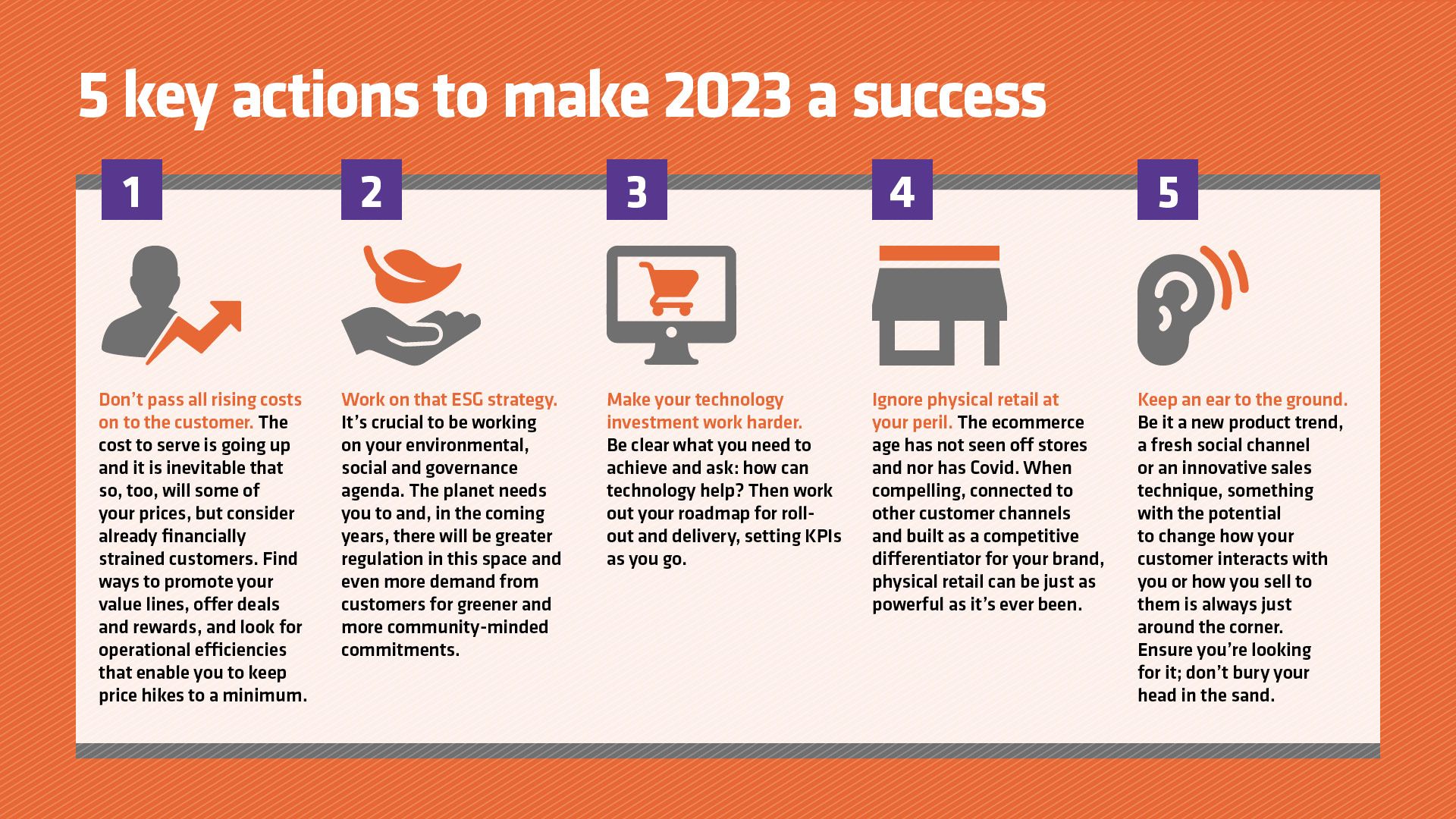
During the first year of the pandemic, the world pondered what the ‘new normal’ might look like.
With the challenges they faced during this unprecedented period and the Brexit-influenced years before it, retailers could be forgiven for thinking the new normal for their industry is simply managing through disruption.
To succeed in that environment, retailers will need to build in capacity to deal with the unexpected and focus on the things they can control.
With supply chain uncertainty expected to continue into 2023, depressed consumer sentiment looking likely for some time ahead and recruitment into retail remaining tough, operations need to be lean, efficient and customer-focused.
Retailers need to quickly gauge where their customers – both current and future – are spending their time and have a presence there. Embedded digital marketing tactics, including email, SEO and social media marketing, continue to be the path chosen by the industry, but brands also need to keep an eye on emerging platforms such as TikTok and video on demand.
After Covid-influenced spikes in online retail and subsequent falls in ecommerce activity, retailers must also rapidly get to grips with where that sales channel mix is going to land in the immediate post-pandemic years. This will continue to evolve – and could again shift suddenly towards digital if another pandemic rears its head – but stores have shown their strength and standing in the face of such adversity and remain fundamental to retail’s future.
John Lewis made the bold move to close a third of its store estate in 2021 in light of its increasingly comfortable digital customer and the need to cut costs, but AO and Shopify’s overconfidence in the growth of ecommerce serves as a timely reminder of the importance of making balanced decisions.
The need for technological investment is clear among those Retail Week interviewed – and back-end systems, tech to improve CX and solutions to foster better working environments for staff are those that can really make a difference.
Zebra’s Thomson says: “As mentioned throughout this report, staff are the cornerstone of a successful customer experience.
“To empower frontline employees, retailers need the right tools backed by the right infrastructure that is able to turn data into intelligence. The next step is making meaningful changes such as assigning course-corrective actions to the appropriate employee so they can quickly resolve problems.”
While digital transformation has been the industry buzzphrase of the last decade and still needs to occupy the minds of retailers on an ongoing basis, the drive for sustainability and social good is beginning to take over as the loudest mission statement. And so it should; retail, as the UK’s largest private-sector employer and an industry ‘in the community’, needs to take a lead – not forgetting that what’s good for society can often be good for business.
There is no denying that 2023 looks daunting for the industry, but the past few years have shown that retailers are made of sturdy stuff and they are certainly getting used to dealing with the obstacles put in their way.

Love this report?
Why not book one of our experts to present the findings to your team, examining what they mean for you and your business?
Contact Isobel Chillman at isobel.chillman@retail-week.com
If you have a question about the research or would like your chief executive to be featured in next year’s report, contact James Knowles at james.knowles@retail-week.com
This report is sponsored by Zebra Technologies.



